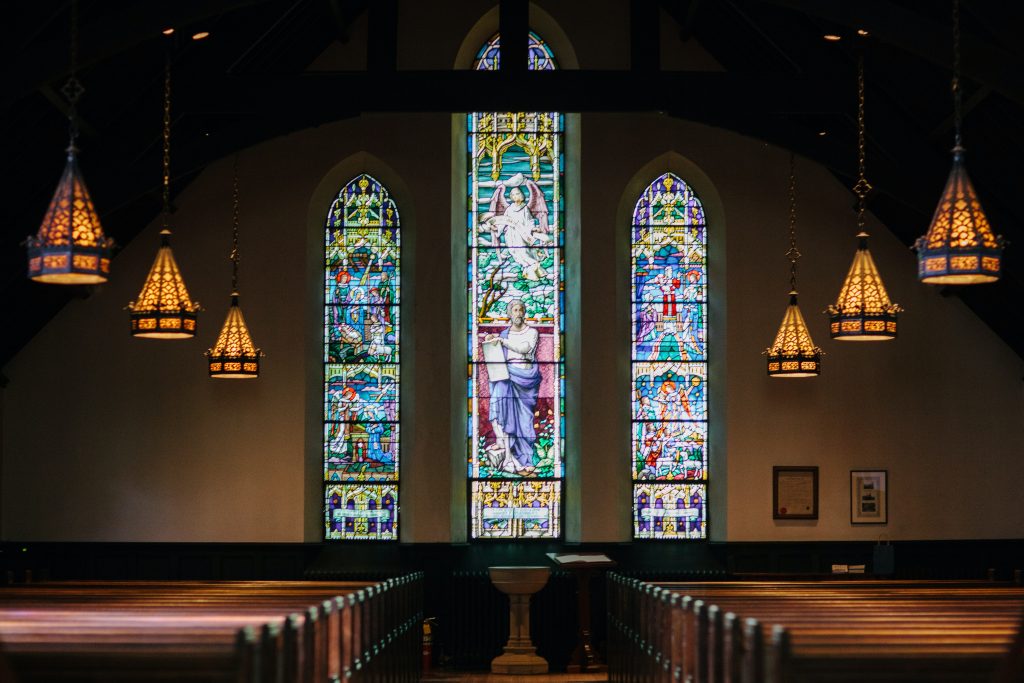When Jesus invited his friends to leave their nets and boats and follow him, he asked them to think carefully before deciding. Jesus was not running an incentive program or using church growth strategies like we do. He warned people that if they chose to join him there would be joy in the presence of God and fellowship with the believers, but also no end of trouble, pain, and suffering. Followers of Jesus saw themselves not stepping into a powerful status or even maintaining what they had, but truly, tangibly leaving their lives behind, preparing to lay down their rights and lives if necessary to see God’s Kingdom made real on earth.
Things played out pretty much as Jesus predicted. At first, the disciples in Jerusalem were persecuted by their own communities, most famously by Saul and King Herod Agrippa. Stephen was stoned to death. They fled across the countryside, spreading word of God’s Kingdom as they went. As the Church spread across the miles, out of Judea and into the larger Greco-Roman world, the new Christians’ lifestyle was confusing, and just as likely to land them in trouble or jail or death row. They were forming communities that pooled resources to care and provide for each other and for those outside the community as well, taking in abandoned babies, giving safety to the poor and outcast, sharing meals with slaves and women—all scandalously subversive in their culture. In choosing a lifestyle guided by compassion rather than by their rights or self-preservation, they threatened the delicate balance of the power systems that exploited the marginalized and vulnerable and protected the wealthy and strong.
But the Christians didn’t care what punishment the empire levied on them (not enough to stop following Jesus, anyway). They had counted the cost. They knew following Jesus was dangerous and difficult, meant turning their backs on safer, more successful life paths—but they believed that in raising Jesus from the dead, God had clarified which side he was on.

We’ll never have access to the closed-door conversations and personal decisions of these early Christians. But none of these men and women had to leave behind family, community, and security to follow Jesus and live for God’s Kingdom. If they hadn’t wanted to, if they hadn’t seen value in doing so, they would have left their lives undisturbed. They gave far more than they were asked to—or allowed to, even—and did so with overflowing joy.
Fast forward a few thousand years, and I’m baffled how much the conversation has changed. Whether the question is one of inviting immigrants and refugees into the safety of our neighborhoods and home, of using lethal force against others, of wearing a mask to protect our vulnerable neighbors, or a million other daily questions and decisions, the scale between right and wrong seems calibrated not around laying our lives down for our neighbors, but around protecting ourselves: our legal and constitutional rights, our property, our wealth, our lives.

Yet these are all the things Jesus calls us to set aside when we decide to follow him.
Defending our rights, wealth, and lives is often hailed as a hallmark of Christian virtue in America today, so I wonder: Why did we decide to follow Jesus in the first place?
We seem determined to turn Paul’s words to the Philippians on their head: We intend to do everything out of selfish ambition and vain conceit, looking to our own interests lest the interests of others interfere with our own.
Counting the Costs
I look to the behavior and patterns of the earliest Christians in part because we, too, are empire Christians. Most of us live as citizens of a global superpower that incentivizes us to leave compassion aside and protect the status quo. We can embrace the safety and security of empire living—or we can follow Jesus. Will we leave our lives and comforts behind to follow Jesus, who asks us to spend our resources and our rights not to protect ourselves, but to practice love?

Christianity is a religion, a worldview, a set of beliefs and doctrines. But it is also and foremost a practice. A way of being in the world. A way of living that we practice, together, day by day. The practice of following Jesus invites us to lay aside fear and self-preservation and choose to live out of love, to use what we have not to further our own goals, but to bless and sustain those around us—whether neighbor, stranger, or enemy.
Whether or not we choose to worship Jesus is our own decision. No one is making us follow Christ. But if we do choose to follow Jesus, to take up our cross, to restructure our lives around loving God and loving our neighbors, then that becomes our Christian duty, mandate, and joy; we should be ready to do so on a daily basis.
Even when it costs us.

Fearing Bravely by Catherine McNiel
Jesus commands us to love our neighbors. So why are so many Christians taught to fear their neighbors? The American church is known as a people who are afraid, who have been nurtured through fear into hatred, and who have moved from hatred to violence—or at least to neglect. This fear, too often lived out boldly in the name of Jesus, is a false religion.
God instructs us to welcome strangers. We are not to withhold hospitality or help from anyone in need. So why do we fear strangers, especially those needing hospitality, afraid that their presence may threaten what we have?
Jesus taught us to love our enemies. We are to pray for those who actively harm us. Instead, we create enemies in our minds, seeing anyone who thinks, believes, looks, or lives differently from us as dangerous, a threat to our way of living.
The Christian community exists to declare and demonstrate God’s love and to follow Jesus in practicing love over fear, even in unsafe times and places. It’s time to reclaim our brave fear of God and risk transformative love for the sake of our neighbors, the strangers among us, and our enemies.
We are people of the Kingdom. Fearing Bravely teaches us that we have nothing to fear. Instead, we can respond to our fear problem with a brave love that emerges from choosing to let our fear of God overcome our fear of everything else.
Catherine McNiel writes with conviction, wisely guiding us to recognize our fear and, with God’s help, not let it limit us to love courageously all who are among us.


